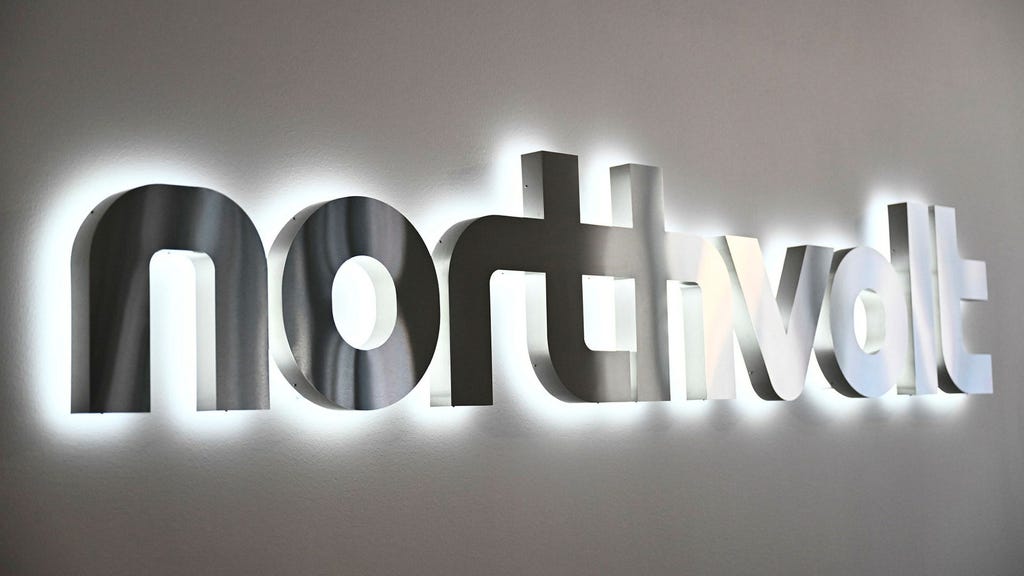Northvolt, a Swedish battery manufacturer crucial for the European green transition, recently filed for Chapter 11 bankruptcy protection in the United States, a move that has averted immediate financial collapse and secured short-term funding. While this action provides a temporary reprieve from creditors in the US while the company restructures its finances, it does not offer complete protection from legal action by creditors in other jurisdictions, particularly Sweden, where Northvolt’s main operations and a significant portion of its workforce are located. This legal vulnerability introduces considerable uncertainty about the company’s long-term prospects and creates a complex situation for employees, suppliers, and investors alike. The Swedish labor union IF Metall has voiced its concerns and is prepared to take action should Northvolt fail to meet its payroll obligations, adding another layer of complexity to the ongoing situation.
The Chapter 11 filing allows Northvolt to continue operations while it develops a plan to repay its debts, providing a critical window of opportunity to stabilize the business. This restructuring process typically involves negotiating with creditors to reduce debt burdens, secure new financing, and potentially streamline operations. While the US court’s jurisdiction protects Northvolt from its American creditors during these negotiations, it does not preclude Swedish creditors from pursuing legal action, including filing for bankruptcy in Swedish courts. This potential for conflicting legal proceedings in multiple jurisdictions complicates the restructuring effort and increases the risk of a less favorable outcome for Northvolt. The success of the restructuring hinges on Northvolt’s ability to convince both US and Swedish creditors that the reorganization plan is viable and offers them the best possible return under the circumstances.
The precarious financial situation stems from a combination of factors, including the global economic downturn, rising interest rates, and escalating production costs. These macro-economic challenges have significantly impacted Northvolt’s ability to secure funding and maintain profitability, ultimately leading to the Chapter 11 filing. Additionally, the company’s ambitious expansion plans, while crucial for meeting the growing demand for electric vehicle batteries, have placed a significant strain on its financial resources. The rapid scaling of production requires substantial investment in infrastructure, equipment, and personnel, which, coupled with the unfavorable economic climate, has contributed to Northvolt’s financial distress. The company now faces the daunting task of balancing its long-term growth ambitions with the immediate need to address its financial liabilities and reassure stakeholders of its viability.
The concerns raised by IF Metall underscore the human cost of Northvolt’s financial struggles. The union’s readiness to intervene if wages are not paid highlights the potential for labor disputes and further disruption to the company’s operations. The well-being of Northvolt’s employees is paramount, not only from a social perspective but also for the company’s long-term success. A demotivated and uncertain workforce could hinder productivity and jeopardize the company’s ability to execute its restructuring plan. Maintaining a positive relationship with its employees and ensuring their financial security will be essential for Northvolt to navigate this challenging period and emerge as a stable and thriving enterprise.
The implications of Northvolt’s financial predicament extend beyond the company itself and have broader ramifications for the European green transition. Northvolt is a key player in the European Union’s strategy to reduce its dependence on Asian battery manufacturers and establish a robust domestic battery supply chain. The company’s success is crucial for the widespread adoption of electric vehicles and the achievement of ambitious climate targets. A potential failure of Northvolt would represent a significant setback for the EU’s green ambitions and could delay the transition to a more sustainable transportation system. Therefore, the outcome of the restructuring process carries significant weight not only for Northvolt and its stakeholders but also for the future of sustainable transportation in Europe.
The coming months will be critical for Northvolt. The company must successfully navigate the complexities of the Chapter 11 process, appease its creditors in both the US and Sweden, and secure the necessary funding to stabilize its operations. Simultaneously, Northvolt must maintain a productive workforce, reassure investors of its long-term viability, and demonstrate its commitment to the European green transition. The challenges are substantial, but the stakes are even higher. The success of Northvolt’s restructuring will not only determine the fate of the company but also significantly impact the future of sustainable transportation in Europe. The world is watching closely as this crucial player in the global battery industry fights for its survival.














